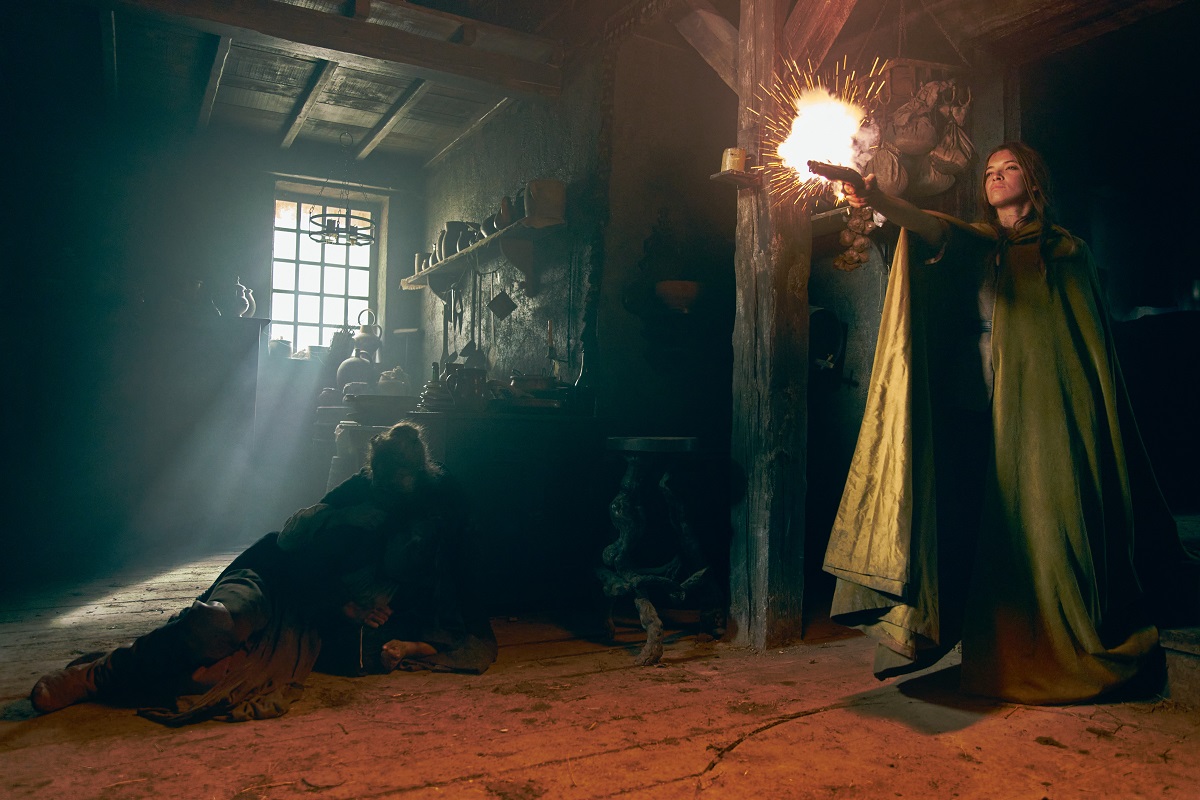At its best, television is a reflection of the culture that created it. It's not always an accurate representation, but it's a window into the mythology and stories that culture thinks are important. It's why I love watching television made outside of the United States. It's not just the enjoyment I get from seeing the work of people unfamiliar to me. It's the joy of seeing a familiar story through the lens of a different culture.
That unfamiliar approach to storytelling is just one of the reasons to recommend La Révolution, an original series from creator Aurélien Molas and Netflix France.
The series is set in 1787 France, in a town about 60 miles from Paris. Two years before the start of the French Revolution, local doctor Joseph Guillotin (Amir El Kacim) uncovers a series of mysterious murders. Young peasant women are disappearing and it appears that there may be some serial killer at work. It's not clear why the murders are taking place, but as Guillotin continues to dig, he discovers an unknown virus which turns the victim's blood blue. It also gives them extraordinary strength along with some unsettling urges.
Joseph Guillotin was a real person. In fact, he is best known for his work to convince the French government to execute criminals by guillotine - a method he argued was more humane than the traditional axe or "breaking wheel." He didn't actually invent the guillotine, but it was named after him because of his work.
But while the Joseph Guillotin in La Révolution bears the same name as France's leading proponent of the guillotine, their stories have very little in common. And that is the case with much of the storyline in La Révolution. It's very loosely based on the real events that led to the French Revolution, but I don't think there is any historical evidence that France blueblood aristocracy literally had blue blood. Instead the story is a "reimagining" of history, drawing on the inequities of French society to frame more traditional tale of monsters - both human and not-so-human.
There are a number of strong performances in La Révolution, including Marilou Aussilloux, who takes an impressive turn as the haunted Elise de Montargis. Elise is the daughter of the local nobility and argues that the population is overtaxed and abused. But she has little sway in a society where women are seen primarily as vessels for giving birth to the next generation of nobility. Her story is one of the over-arching arcs of the season as viewers learn more about how she has been treated and all of the things that have been taken away from her in the past. Amir El Kacem is also extremely effective as Joseph Guillotin, a man who desperately wants to overthrow the current political system. But also somehow believes that change can happen without violence and death.It's difficult to say too much about the main storylines of La Révolution without spoiling things. But Molas and the cast do a spectacular job at framing an unlikely premise in a way that seems as if it's the way the French Revolution *could* have happened. And the story also feels contemporary in some very unsettling ways.
I don't know enough about the current political and cultural climate in France to hazard a guess about how La Révolution will feel to French viewers. But as an American, the show's themes of a dismissive and corrupt upper class, a lack of upward mobility and a deck stacked against the working class seems painfully contemporary. While there aren't a lot of factual similarities between pre-Revolution France and the United States in 2024, the feel and emotional weariness of fighting what seems to be a hopeless battle against the powerful resonates deep into me.
La Révolution was a treat to watch and it's perfect suggestion for viewers wanting something that is entertaining, unexpected and often thought-provoking.
La Révolution is currently available for streaming on Netflix.
Deep Streams: 'La Révolution'
- Details
- By Rick Ellis

